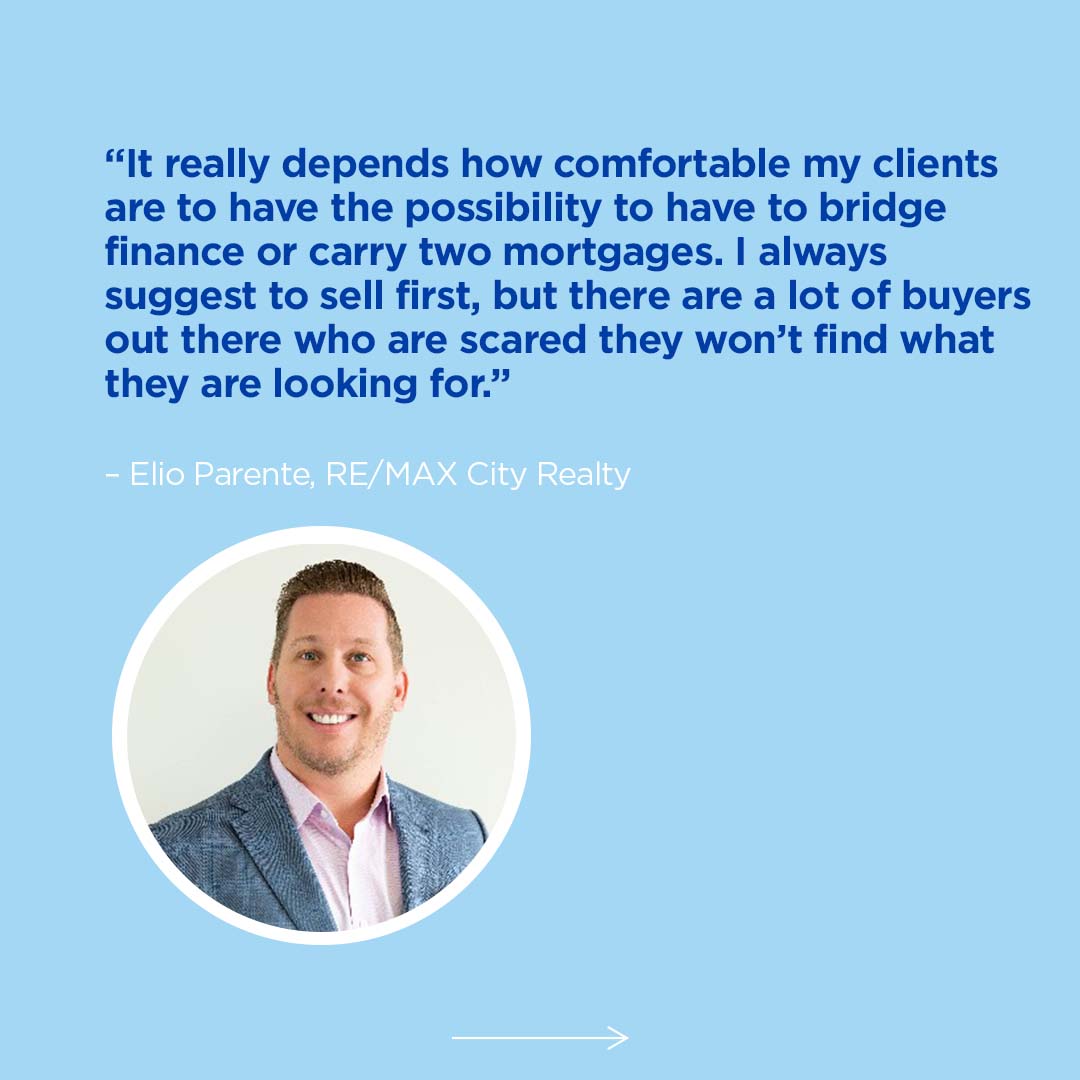WHICH COMES FIRST: SELLING YOUR HOME OR BUYING A NEW ONE?

Do you buy or sell first?
It’s always good to ask yourself what kind of market you’re in: buyers or sellers. If you are a seller, then the general rule of thumb is to sell your current house before you buy a new one. If you are a buyer, then it can be beneficial to buy before selling. In order to do this, you need to make sure your timelines match up, and that your finances will allow it. Buying and selling at the same time is possible but not easy. You’ll need some flexibility, and a bit of luck.
Avoid a rushed home sale!
Selling your old house before you buy a new one might be the more practical solution for most people, but it’s not always the most convenient. Selling first is beneficial if you need to access your current home equity to fund your new home. However, selling first means that you’ll have to find temporary housing while you wait for the sale of your old house to go through.
The long and short of it is that selling first is best for people in a buyers market. If you know that the cost of your old house will take longer to sell and pay off, you may want to consider selling first. Keep in mind that selling first means that you’ll likely have to find temporary housing while your old house goes on the market.


Avoid a rushed home sale
Selling first gives you the luxury of time. You can wait until you get an offer you’re satisfied with, without the pressure of knowing you already bought (or are in the process of buying) a new house. If you’re buying in a sellers market, making an offer contingent upon your own house selling might make your offer less desirable or competitive.
By selling your current home before you buy, you have the actual cash from your sale to apply to your next purchase. It’s difficult to estimate your earnings before closing because sellers often make concessions. When you know your profit, you can adjust your affordability and shop within budget.
Pay only one mortgage
Many home buyers choose to sell their current home before purchasing the next one. On paper, this seems like the logical choice-it’s less of a hassle and you don’t have to worry about paying two sets of mortgages. However, there are some drawbacks. Living in your home while you list and show it can be overwhelming. In addition, the 45-day closing window of your current home could present inconvenience during the purchase and close on your next home.
.


